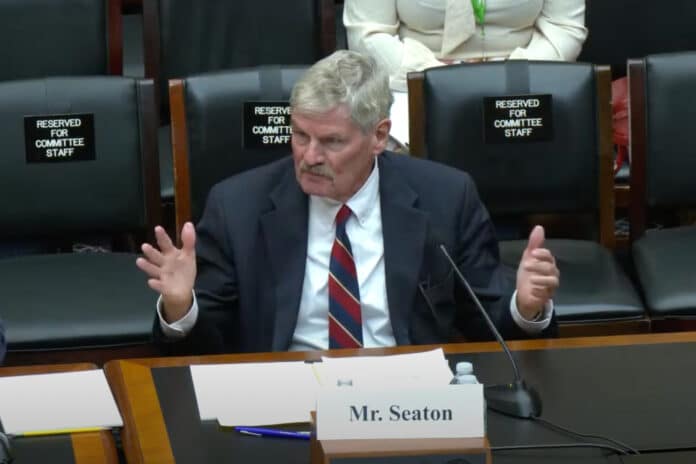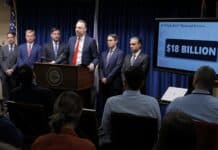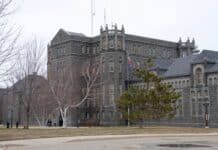
In 1935, Congress passed the National Labor Relations Act (NLRA) to protect private-sector workers’ rights to freely associate and to seek better working conditions without fear of retaliation. The NLRA created the National Labor Relations Board (NLRB) to enforce these rights. However, the current NLRB has strayed from the NLRA’s original spirit and purpose by embracing an exclusively pro-union agenda hostile to employees’ rights and antagonistic to employers.
The genius of the NLRA and our American labor relations system is its balance of objectives and interests. The NLRA upholds an employee’s free decision whether to join a union and protects union employees by ensuring that unions pursue fair terms of employment, not unrelated political goals. The NLRA safeguards union members’ jobs and employers’ solvency by incentivizing employers not to overreach in their own bargaining positions and encouraging unions to moderate their positions in bargaining, striking, etc., to respond to market and competitive forces. Finally, and fundamentally, the NLRA moderates employment disputes, channeling conflicting interests into productive compromises within market realities, thereby avoiding violence and serving the good of the nation.
The current NLRB is actively upsetting this equilibrium of objectives by favoring union institutional interests over those of employees and employers. Several of the NLRB’s recent decisions and actions exemplify this favoritism.
The current NLRB has modified and overruled prior NLRB decisions and procedures to limit the circumstances and times when employees can reject, terminate or change union representation. This has been the case even when businesses have been sold to new employers and their workforce and mission has changed. When employees petition employers to end union representation, the NLRB almost always assumes the employer has “put them up to it” and disallows or stalls the process for confirming non-union status.
The current NLRB has bucked anti-discrimination legal protections for employees by discarding the prior Board’s vindication of employee discipline for racist or sexist insults and harassment against other employees, even when committed during “union activity,” and restoring the “free pass” for such conduct during union picketing and the like.
In opposition to the guidance of the Equal Employment Opportunity Commission and State human rights departments, the current NLRB has insisted on the disclosure of evidence and witnesses’ identities in confidential and employer investigations of discrimination and harassment. By requiring such disclosures not only to NLRB investigators but to unions who may then retaliate against witnesses who report union bad conduct, the NLRB undermines employee confidentiality and fosters anti-employee retaliation.
The current NLRB seeks to end the long-standing rule allowing employers to sponsor, pay for, and require attendance at meetings at which the employer informs its employees about labor law and labor relations practices, often from the NLRB’s own materials on these subjects, so long as no improper threats or promises or other unfair labor practices occur. Ending this practice means employees may not receive accurate information on these matters or else will only receive it from biased, pro-union sources, since another long-standing NLRB decision says that unions, unlike employers, are not sanctionable for lying to employees in the course of organizing.
In opposition to the NLRA’s focus on employee choice for or against union representation, the current NLRB has revised election rules for union representation and decertification elections in several ways that diminish employee rights and insulate unions from employee opposition.
The current NLRB has sought to eliminate independent-contractor status by unilaterally assigning employee status to independent contractors who have voluntarily entered independent-contractor arrangements. This is usually done so unions can assert organizing claims over the newly conscripted workers. The current NLRB is also pursuing a rule which would essentially disallow independent-contractor status in entire industries, despite decades of such arrangements.
These examples illustrate how the current NLRB has strayed from its neutral, balancing role enshrined in the NLRA and rightly expected of a government agency overseeing the often-contentious arena of labor relations. The current situation is an egregious example of “agency capture,” where unions represent only 6% of the U.S. private-sector workforce, yet the NLRB’s pro-union decisions affect even the interests of the 94% of employees not represented by unions—not to mention the interests of the millions of independent contractors as well as those of employers and the nation itself.
It is imperative that the balance of interests and neutrality of this important agency and the equilibrium of objectives the NLRA was intended to promote are restored, but, unfortunately, the current NLRB chair and general counsel show no inclination to do so.
Douglas P. Seaton is the Founder and President of the Upper Midwest Law Center, a Minnesota-based, non-profit public interest law firm. He holds a law degree as well as a Ph.D. in History, with a concentration on labor history. Previously, he practiced labor law on behalf of management and on behalf of employees in disputes with unions from 1982 through 2018 and taught college history and labor and employment law to attorneys, employers, and employees.










